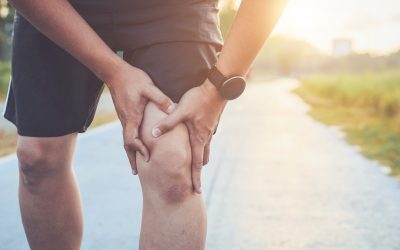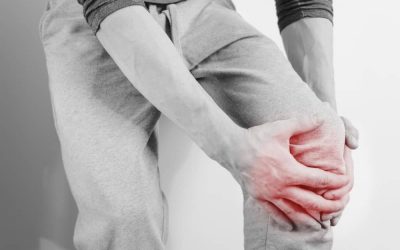What to Do After Knee Pain Treatment: A Recovery Guide
If you’ve recently undergone knee pain treatment, you’re likely eager to regain full mobility and get back to your daily activities. At New York Knee Pain Doctor, we understand the importance of a smooth and effective recovery. Our board-certified interventional pain doctors have helped numerous patients recover from knee pain, and we’re here to guide you through the post-treatment phase. In this recovery guide, we’ll cover everything you need to know about what to do after knee pain treatment to ensure a successful and comfortable recovery.
We Exclusively Focus on Minimally Invasive Knee Pain Treatments in New York
Before diving into the recovery, it’s crucial to have a clear understanding of the knee pain treatment you received. At New York Knee Pain Doctor, we specialize in minimally invasive pain treatments, meaning that we prioritize non-surgical and non-opioid interventions. This approach minimizes the risk of complications and promotes faster recovery. Your specific treatment may have included procedures like injections, nerve blocks, or other interventional pain management techniques, all tailored to address the root cause of your knee pain.
Immediate Post-Treatment Care
Follow Post-Treatment Instructions Diligently
Your knee pain doctor will provide you with a set of post-treatment instructions tailored to your specific procedure and condition. These instructions are not to be taken lightly; they serve as your roadmap to a smooth recovery. Pay close attention to the following aspects:
- Activity Restrictions: Depending on the nature of your treatment, you may have restrictions on certain activities. These restrictions are designed to prevent strain or injury to the treated area. Follow them rigorously to avoid complications.
- Medication Guidelines: If your doctor prescribes pain medication or any other medications, it’s essential to follow the recommended dosage and timing. Pain medication can help manage discomfort during the initial stages of recovery, but it must be taken responsibly.
- Wound Care: If your treatment involved any incisions or wounds, your knee pain doctor will provide instructions for proper wound care. This may include cleaning, dressing changes, and monitoring for signs of infection.
Manage Pain and Swelling Effectively
After knee pain treatment, it’s common to experience some degree of pain and swelling. Proper management of these symptoms can significantly improve your comfort and facilitate a faster recovery. Here’s how to do it effectively:
- Pain Medication: If your doctor has prescribed pain medication, take it precisely as directed. These medications are typically prescribed for a limited time to alleviate acute post-procedure pain. By adhering to the prescribed dosage, you can effectively manage discomfort.
- Ice Packs: Applying ice packs to the treated area can reduce post-treatment swelling and pain. Use a clean cloth to wrap the ice pack and apply it to the affected area for 15-20 minutes at a time. Avoid direct contact between ice and skin to prevent frostbite.
- Elevate Your Leg: Elevating your leg when resting is an often-overlooked yet highly effective way to minimize swelling. Prop up your leg using pillows or cushions while sitting or lying down. This elevation helps reduce fluid buildup in the affected area.
- Compression (if advised): In some cases, your knee pain doctor may recommend using compression stockings or bandages to further control swelling. Ensure you understand how to apply compression correctly, as improper use can have adverse effects.
Prioritize Rest and Limited Activity
Rest is your body’s best friend during the early stages of recovery. To allow your knee to heal optimally, it’s essential to take it easy and avoid strenuous activities immediately following your knee pain treatment. Here’s how to strike the right balance between rest and limited activity:
- Complete Rest: During the initial 24-48 hours after treatment, complete rest is often recommended. This means staying off your feet as much as possible and avoiding activities that could strain your treated knee.
- Gentle Movement: While rest is crucial, avoiding prolonged immobility is equally important. Gentle movements, such as flexing and extending your toes or ankle, can help prevent stiffness and blood clots. Consult your knee pain doctor for specific recommendations.
- Avoid Weight-Bearing: If your treatment involved a procedure that affects your ability to bear weight on the treated leg, adhere to your provider’s instructions strictly. This may require the use of crutches, a brace, or other assistive devices to protect the treated knee.
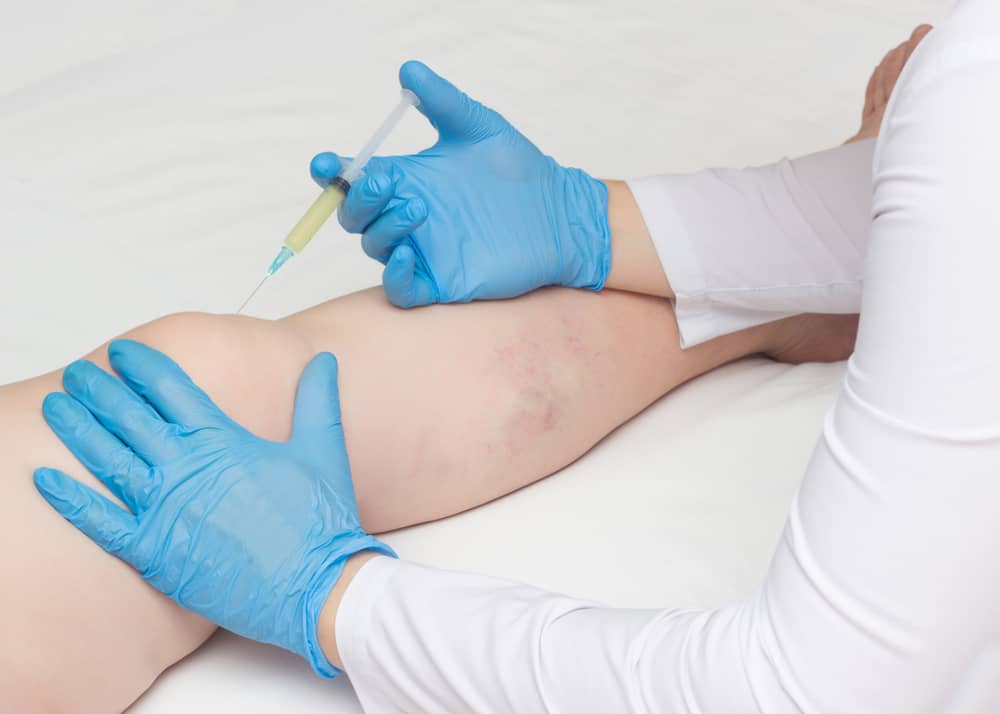
Sick of your Knee Pain?
Book an Appointment!
We offer free insurance verification! Fill out the form and expect a call from one of our agents:
Weeks After Surgery: Gradual Progress
Engage in Physical Therapy
Your knee pain doctor may recommend physical therapy to help you regain strength, flexibility, and functionality in your knee joint. Your physical therapist will work closely with you to develop a personalized rehabilitation plan based on your specific condition, treatment, and goals. Attend your therapy sessions as scheduled, and perform the exercises and stretches recommended by your therapist at home. Consistent effort will yield the best results in terms of regaining mobility and strength. Your physical therapist will continually assess your progress and adjust your treatment plan accordingly.
Controlled Exercise Is Crucial
Incorporating controlled exercises into your recovery routine is essential for building strength and maintaining joint mobility. These exercises should be tailored to your specific needs and abilities. Here are some key points to keep in mind:
- Gentle Stretches: Gentle stretching exercises can improve flexibility and prevent stiffness in the treated knee joint. Stretching should always be done within your comfort zone.
- Leg Lifts: Leg lifts and range of motion exercises can strengthen the muscles around your knee joint. These exercises help stabilize the joint and improve its overall function.
- Avoid High-Impact Activities: While it’s essential to engage in exercises that promote recovery, avoid high-impact activities or sports that could potentially strain or injure your knee.
Maintain a Nutrient-Rich Diet
Diet plays a crucial role in the healing process. Nutrient-rich foods support tissue repair, reduce inflammation, and enhance overall recovery. Protein is essential for tissue repair and muscle strength. Include lean protein sources like chicken, fish, beans, and tofu in your diet. Ensure you’re getting a balanced intake of vitamins and minerals. Calcium, vitamin D, and vitamin C are particularly important for bone health and tissue repair. Staying hydrated is also crucial, so drink plenty of water throughout the day.
Monitor Your Progress Closely
Keeping track of your recovery progress is essential for both you and your healthcare provider. Maintain a daily journal to record your activities, exercises, and any changes in pain or discomfort. This will serve as a valuable tool for tracking improvements and identifying areas that may need adjustment. Maintain open and honest communication with your knee pain doctor and attend your scheduled follow-up appointments to assess your recovery, address any concerns, and make necessary adjustments to your treatment plan.

Find Your Nearest Knee Pain Treatment Center
Our Manhattan NY knee pain clinic is conveniently located on 290 Madison Avenue Suite 203
Months After Surgery: Long-Term Recovery
As you transition into the months following your knee pain treatment, you should notice significant improvements in your mobility and overall comfort. However, it’s essential to maintain your commitment to long-term recovery:
- Gradual Return to Activities: You can gradually resume your regular activities, but do not push yourself too hard too soon. Listen to your body and adjust your pace accordingly.
- Continue Physical Therapy: Even as you regain more independence, continue attending physical therapy sessions. They ensure your knee heals correctly and functions optimally.
- Pain Management: While your pain should decrease over time, some discomfort may persist. Consult with your interventional pain specialist to discuss ongoing pain management.
- Stay Active: Regular physical activity is essential for maintaining healthy knee joint. Engage in low-impact exercises like swimming, cycling, or walking to keep your knee joint mobile.
- Stay Hydrated: Proper hydration supports tissue healing and overall health. Drink plenty of water throughout the day to maintain hydration levels.
- Mind Your Medications: If you’re taking medication for pain or other health issues, ensure you take them as prescribed by your healthcare provider.
- Avoid Overexertion: While it’s important to stay active, avoid overexerting yourself, as this can lead to setbacks in your recovery. Listen to your body and rest when needed.
- Attend Follow-up Appointments: Regular follow-up appointments with your knee pain doctor are crucial for monitoring your progress and addressing any concerns.
Visit New York Knee Pain Doctor
Recovering from knee pain treatment is a gradual process that requires patience and dedication. At New York Knee Pain Doctor, our team of board-certified interventional pain doctors is here to support you every step of the way. Remember that everyone’s recovery is unique, and it’s essential to follow the personalized guidance provided by your knee pain doctor.
By adhering to the post-treatment instructions, engaging in physical therapy, and taking a proactive approach to your recovery, you can expect to regain mobility, reduce pain, and enjoy a more comfortable and active lifestyle. If you have any questions or concerns during your recovery, don’t hesitate to reach out to us. We’re committed to your well-being and look forward to helping you achieve a full and successful recovery from knee pain treatment.
FEATURED POSTS BY PAIN DOCTORS
Find a Doctor for Knee Pain at Brighton Beach, NY
Find a Doctor for Knee Pain at Brighton Beach, NYKnee pain can make even the simplest tasks feel like monumental challenges. Whether it’s the sharp pain you feel when climbing stairs, the nagging discomfort after walking for a while, or the stiffness that sets in...
Find the Best Knee Pain Doctor in Brighton Beach, NY
Find the Best Knee Pain Doctor in Brighton Beach, NYKnee pain can be a daily struggle that affects everything from your morning jog to simply walking up the stairs. If you’ve been experiencing knee discomfort, stiffness, or swelling, you know how it can limit your...
Knee Pain Treatment: What to Expect and What to Avoid
Knee Pain Treatment: What to Expect and What to AvoidIf you're reading this article, chances are you or someone you know is experiencing knee pain, and you're seeking answers on how to effectively manage and treat it. At New York Knee Pain Doctor, led by...
The Benefits of Knee Pain Treatment for Athletes
The Benefits of Knee Pain Treatment for AthletesAre you an athlete struggling with knee pain, desperately searching for relief and a way to get back to your peak performance? At New York Knee Pain Doctor, we understand the unique challenges athletes face when dealing...
Meet Our Team of Knee Pain Specialists
KNOW OUR TEAM OF HARVARD TRAINED KNEE SPECIALISTS

Knee Pain Doctor in New York
Dr. Michael Nguyen
Dr. Michael is available for Knee Pain treatment consultations in Manhattan, New York.
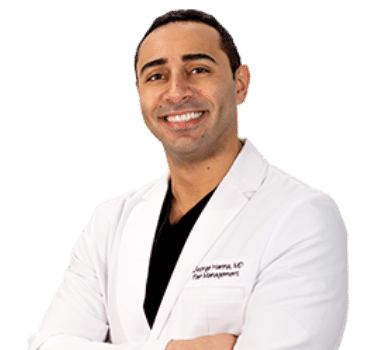
Knee Pain Doctor in New Jersey
Dr. George Hanna
Dr. Hanna is available for Knee Pain treatment consultations in Manhattan, New York.

Knee Pain Doctor in New York
Dr. Shane Volney
Dr. Volney is available for Knee Pain treatment consultations in Manhattan, New York.
Keeping you safe during COVID-19
Learn about our health & safety protocol.


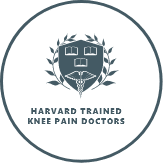




contact us today
Call us
Speak instantly with one of our team members; they will answer any questions you may have regarding insurance coverage, booking an appointment and our knee pain center in New York and New Jersey.
Book Online
Visit our Book Appointment page and instantly request an appointment at our Manhattan knee pain clinic. We offer Free Insurance Verification before your appointment.
Get directions
Learn how to easily get to the Knee Pain Clinic nearest you.



